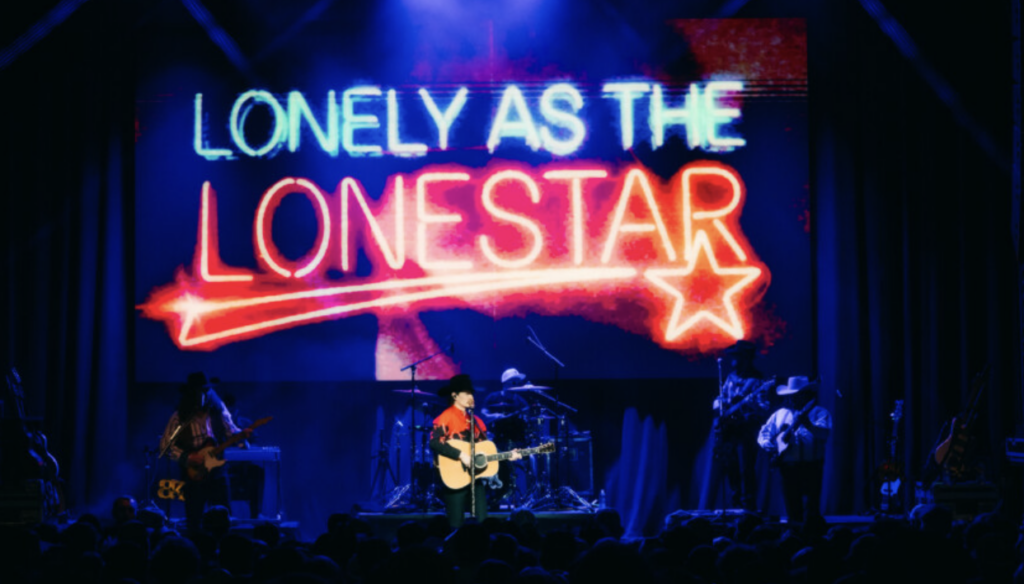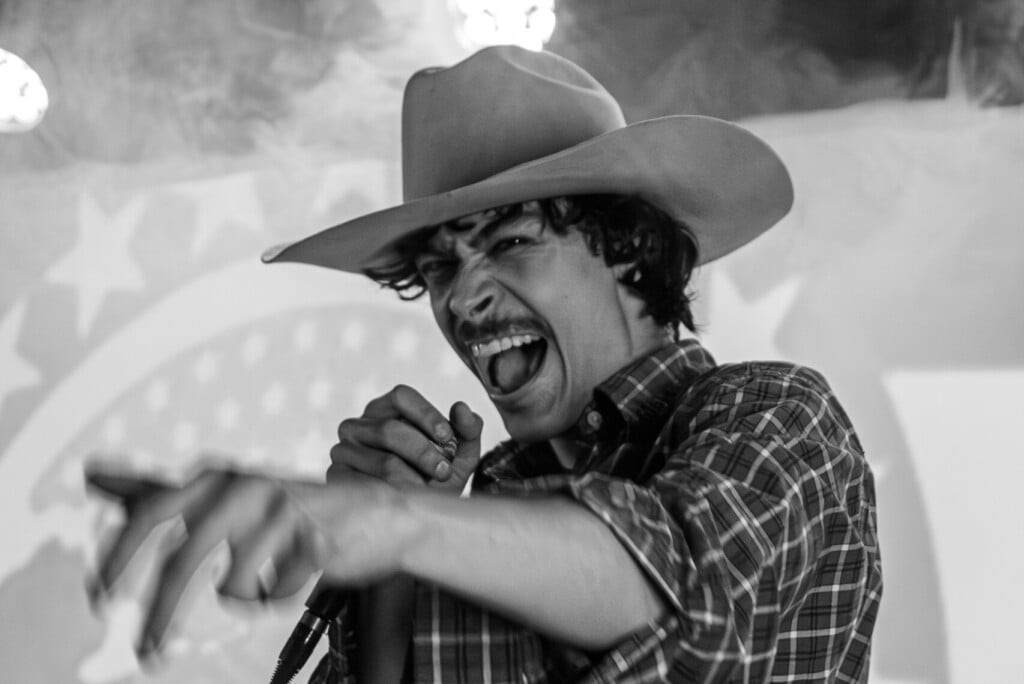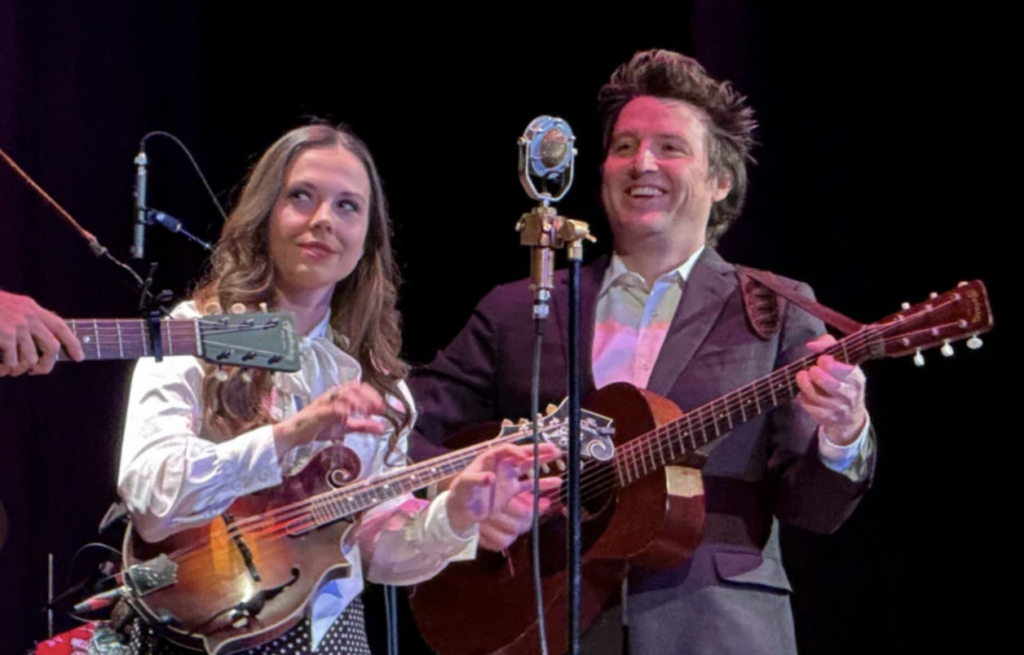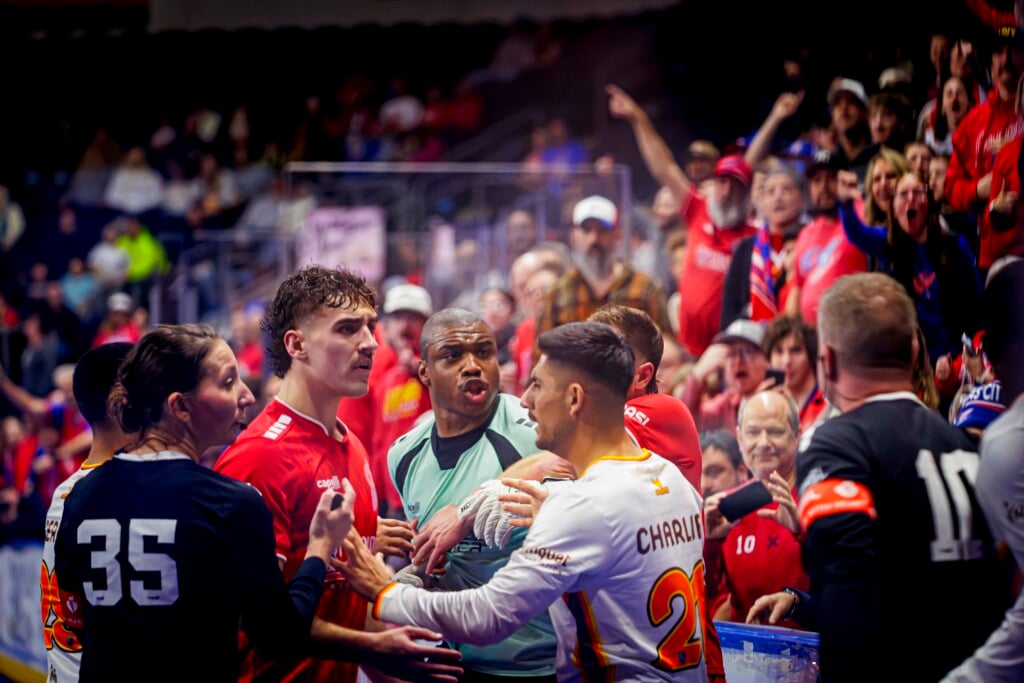Waking Life

Slug stares blankly through half-mast eyelids, drool en route from his gaping mouth like a delayed-reaction stream at an outdoor water fountain. Dark circles surround his sunken eyes, giving the impression that sleep-deprivation is kicking his ass. The camera clicks, capturing the driver’s-license-from-hell image that will decorate the cover of his hip-hop duo Atmosphere‘s album God Loves Ugly. Soon after, Slug finally crashes after three straight days of ecstasy-induced insomnia.
Months later, this photo serves as a visual aid when Slug calls the Pitch, again in a bleary, altered state. “I stayed up way too late working on this project,” he mumbles. “I came home at 11 this morning and planned to go to sleep, but it didn’t happen….” The phrase trails into nothingness, then Slug awakes with a start like a nightmare victim and belts out, “Hi, how are you doing?!” before losing his spark and slurring a few subsequent sentences. “Hold on a minute,” he requests. Then he launches into a lengthy coffee-shop order peppered with doubles, triples and “-ccino” suffixes.
In his lucid moments, Atmosphere spits emotionally honest hip-hop in clear, conversational tones. His reflections on ruined romance range from diary-level intimacy to third-person tortured-artist prose such as everyone in his life would mistake it as love, often within the same minimalist, piano-sprinkled track. (Silent partner Ant makes the beats.) Like indie rockers who deal with similar subjects, he’s been branded with the emo tag, and though he’s had some fun with the label (naming one song “Saves the Day” and telling CMJ magazine he’d call his next record The Get Up Kids), he despises the genre.
“I hate it,” he says, his caffeinated concoction fueling the vigor in his declaration. “I act like I like it just so I can make out with the emo kids’ girlfriends.”
Like Bright Eyes and Dashboard Confessional, other artists who could easily convince many of their female fans to abandon their dates, Slug ruminates on prickly relationships, self-doubt and inner conflict. But though he’s sensitive enough to make it cool to rap about love again, he’s also bad-boy enough to follow that line with not that hippy stuff/I’m talking ’bout that bitch that gets you nuts. Slug plays both roles throughout the disc, asking earnestly for a hug, then chanting, Make some noise for the women who swallow stuff. The latter demand would provoke eye-rolling and reprimands from underground heads if delivered by a mainstream MC with a pimp persona, but Slug gets a pass — which he thinks is only fair.
“On the one hand, you’ve got this guy over here who’s just massively rich, and on the other hand there’s this guy who’s never gonna get rich, so you might as well let him think he’s important,” he says. “It keeps the world in balance. Ja Rule makes a shitload of girl songs, and there’s a lot of girls who aren’t complaining about it.”
Before Ja, a long list of rappers paid tribute to a female muse, from A Tribe Called Quest’s “Bonita Applebum” to Stetsasonic’s “Sally” to Ghostface Killah’s “Wildflower.” Respected lyricists such as Big Daddy Kane and L.L. Cool J rapped sappy love songs, while 2Pac and Jay-Z parodied that form by composing romantic odes to their handguns. Still, none of these artists has devoted as much album space to these kinds of songs as Atmosphere has, which is why he’s provoked unprecedented criticism. Slug addresses the insults on wax, rapping, You heard Slug sing his songs about women/He must be a weakling/I know I can fuck with ‘im.
“Nobody would give a shit about me and my little songs about women if I wasn’t getting some shine right now,” Slug says. “Now that I’m getting a little light, every wanna-be MC is bitching and moaning that I’m making all these girl songs.”
If any of the naysayers wants to settle matters on the mic, Slug says he’s still prepared for lyrical war, though his albums contain few of the sensationalized similes that dominate battle rap.
“All my songs are battles,” he maintains. “But I’m not battling rappers anymore. I’m revolting against life, myself and my flaws, you and your flaws. Battle rappers don’t understand it because I’m not saying, ‘I’m over your head like a rafter.’ I don’t care anymore who likes my shit or about being the dopest in the world. I’d rather make some shit that makes my kid feel like his dad actually did something important.”
When he’s regaling his offspring with tales of his achievements, he can describe playing packed 1,000-seat venues in New York and Los Angeles. But even if he gets the opportunity to play bigger stages, Slug says he’ll turn them down the way he’s spurned major-label suitors.
“Staring out at 1,000 kids I don’t know is a little weird,” he says. “I’d rather do three nights in a row in a small club. You can try to personally connect with as many kids as you can without staring into this ocean of bobbing bunny heads.”
Slug has a reputation as an accessible performer who discusses his lyrics at length after shows. “I let them keep their interpretations, because nine times out of ten, it’s doper,” he explains. “If people really knew what these songs were about, they’d think I sucked. Well, actually, probably not. I’m talking in circles, that’s the deliriousness. I’m going to drink some more coffee.”
Properly recharged, Slug attributes his desire for cozy venues to self-preservation. “What if all these kids decided at the same time that they hated me?” he inquires in mock terror. “They’d kick the shit out of me. I could take on 250 kids no problem, but 1,000 just might get the best of me.”
For every such amusing assertion, Slug makes a self-deprecating statement such as, “I’m not Midas. Half of my stuff is garbage, and you people just haven’t figured it out yet.” In a genre dominated by grandiose boasts of immortality and invincibility, such claims might be perceived as vulnerability, but Slug views it differently.
“I think it’s one of my strengths,” he says. “I can deal with my flaws. I don’t expect myself to make deep shit or fun shit or anything that makes people want to shake their ass.” Slug pauses to marvel at a scene unfolding across the street — “kids in a cipher, breakdancing, spinning on their faces.” By all indications, it’s a midmorning Minnesota mirage, an impression furthered by the stream of non sequiturs that follows: “productivity … purple ice cream …. party people in the place.”
Slug regroups briefly. “I’m sorry. I’m not doing too good,” he says slowly, back in mumble mode and probably minutes away from a long-overdue nap. If only he were given to such expressions, his slumberless spells could inspire a classic battle-rap boast: I’m so dope/I can’t even sleep on myself.




